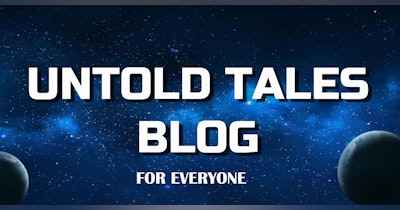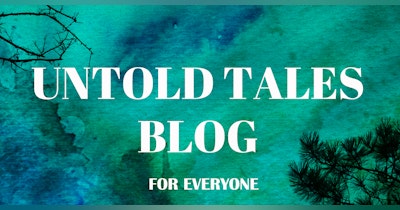SELLING YOUR BOOK – Part 2
In an earlier article, SELLING YOUR BOOK – Part 1, we talked about how to market your book. But not everyone in your target audience is going to feel like buying. For some people, it won't be the right time, or they'll still have open questions about whether the book is right for them. The job of sales is to answer those questions if you can, then get out of the way of the folks who still want to buy the book.
Pitching Your Book
If you’ve already self-published your book, your job is now to pitch it to the people who will buy it. If you go the traditional publisher route, your job is to pitch the book to someone who will publish it for you. That may also mean that you either need to hire a publicist or book marketer or learn how to market your own book.
Your book pitch should be a message crafted specifically to appeal to your ideal readership, which you should have already identified. In your pitch, make it clear what the genre and subgenre are and who the book is for; then include enough information about the inside of the book to make your audience want to read the rest of it. Do NOT include a plot summary. Do NOT just string together the what-ifs that inspired you to write it.
Your pitch should include information about why you’re approaching this particular audience. Finally, it should include information about you, the author.
It doesn’t matter if you’re targeting your readers directly or through someone who knows their interests well. You still need to craft the same message.
So, NOT:
-----
Dear Sir or Madam,
I wrote a really great novel about a guy who is a space detective, and he’s investigating a terrorist cell, and he discovers his mom is a member of the cell. I’ve attached it to this email.
Thanks,
Dinky Wojcheck
-----
But
-----
John Bentham
Acquisitions Editor, Blerf SF
ATTN: SF Noir, Pulp, Space Whodunits
In my thirteenth SF Noir novel, Momma Always Shoots First, Detective James Spiff must balance duty against family as he discovers the terrorist cell he’s been tracking includes his mother as one of its members.
I’ve shared a Google Drive link below to a Dunn-formatted review copy of the MS since Blerf’s submissions page mentions your company’s need for previously unacquired talent.
https://drive.google.com/open?id=18YGcTz-802KIPLZHG5CGWr &usp=drive_fs
Interested? For a plot summary visit: https://novels.dinkywojcheck.com/momma.
For a full list of my novels, visit https://novels.dinkywojcheck.com.
Author bio: https://novels.dinkywojcheck.com/authorbio
Best regards,
Dinky Wojcheck
dinkywojcheck@gmail.com
------
No pitch email/letter/DM is perfect, and fortunately, they don’t have to be. They just need to be effective at answering the questions your audience wants answered.
It may look like the differences in the example above are subtle, but even little stuff like the “ATTN:” line indicates who you want to read the pitch to and help others avoid wasting their time. And after all, if the person you’re talking to isn’t interested in SF Noir, you want to get that out of the way ASAP. The “teaser” mentions the author’s pedigree, is short and sweet and gets right to where to download the manuscript and read more about the author and his books.
That’s the information I’d want if I were thinking about adding your book to my list of publications. So why send in a pitch that makes me dig for it?
Now, if you’re pitching directly to your readership, that’s where all the legwork you previously did getting connected to your readership comes in. Depending on how well you know the members of the groups you joined and what their rules are about promoting new books (some like this; some don’t), just share authentically and casually that you have a new book out—but don’t forget the same details included in the pitch letter to the agency or publisher you would have otherwise contacted.
It really is all about finding your target audience and answering the questions that stop them from buying.
Should I run paid ads for my book?
If you have the budget, it’s something to consider. Personally, even if you’ve targeted an affinity audience on social media, you have no idea if any of its members intend to buy a book. If you run paid search ads, it’s often a struggle to get exactly the right keywords—and buyers don’t always just Google for “new dystopian science fiction.” Many such people opt to look for books in places they expect to find books or mentions of books: Amazon, Barnes and Noble, GoodReads, and book review sites.
My take on it is that you should get your book in front of reviewers, get some positive reviews, and repeat the process until the people who comment on your book are the folks others listen to. Solicit author interview opportunities and share links to them on social media. Update your website with the reviews and interviews and share THOSE links. Print off some hard copy comp copies of your book and talk to a local bookstore about doing a book signing—they’ll benefit from it in added attention to their store, so they’re more willing than you think. Set up a virtual book signing if you can (there are tools for this). And once you have some kind of positive press going, reach out to blogs, magazines, and even your local newspaper to see if they’ll do a piece on your book.
If there’s a reasonable connection to your book, consider offering copies of your book as prize giveaways for other people’s promotions.
Advertise only when you absolutely can’t seem to connect to people without paying for the privilege. Then get ready for some fairly low conversion rates. 2% is awful. 5% is okay. 7% is good, and anything above that means you’re hitting it out of the park. If you don’t like those numbers, they pay someone to work on your advertising.
The short version: to effectively sell your book to complete strangers, you have to learn to get good at connecting to people, schmoozing and shaking hands, and starting to think of yourself and your book not as things to sell but as interest-provoking assets that can be used to help promote the products or services of the folks you are working with.
When reaching out, be opportunistic, be authentic, and never be afraid to ask someone you don’t know for help. If it feels like you’re “selling”, you’re probably trying too hard.
HOW you ask for help also matters. People love being helpful, being asked for advice, and being thought of as experts. That’s free and it makes them feel good. Asking for cash or tangible assets just changes what would have been a nice relationship into a purely transactional one.
TIPS: How to be an effective partner in the marketing and selling your book
- Make sure your MS is as clean as it can reasonably be before you start marketing it. I know of one author whose Acknowledgements section thanked his “Assie friend” (a guy who lived in Australia). It’s Aussie. Nothing hurts your credibility with all audiences more than coming off as an illiterate or sloppy writer.
- Try to follow the advice of your agent, publicist, or book marketer. They do what they do for a living, and if you find you’re pushing for ideas that disagree with their approach, either change your mind or change your publicist.
- If you self-publish, please don’t try to do everything yourself. I know it’s tempting because you can avoid those expensive consulting fees and uncertain results. But it’s also like deciding to do abdominal surgery on yourself as a hobby: you often don’t know what you’re doing and things can go south pretty fast. There are skilled cover artists out there with long resumes and low prices who can do wonders for a just-okay book, and a good marketer can help you write an effective blurb and bio for practically anything. There are also folks who can update your book’s front matter to help it sell your book—remember we listed that among the things readers most often check before buying! No matter how simple, lowly, or obvious the task seems, experienced marketers and publicists know things you’ve yet to encounter, and have probably learned valuable lessons along the way. Leverage that! And remember, this is the material you’ll be showing readers to close the sale. Do you really want to assign that task to someone who’s never done it before (you)?
- When you get homework (such as writing a blurb or attending a book signing), DO IT. Your book will not market itself without your involvement. Paying someone to help you doesn’t get you off the hook.
- Don’t go off and contact editors, publishers, agents, et al., on your own unless you already work in sales. It’s easier to screw up than you think, and with some people, you get only one chance. If it’s your only choice, at the very least Google “how to write a pitch letter for a novel.”
- When discussing your book and other work, avoid third-rail topics like sexuality, religion, or politics UNLESS THE BOOK IS ABOUT THOSE TOPICS. Many companies don’t want the trouble of dealing with loose cannons and some even build “outs” into contracts that allow them to exit the relationship if you go on a rant about something not related to your book. This includes any kind of discussion that turns into bullying, including trying to put down trolls who just hate your work. Let it go.
It may sound like a lot of work, but once you’ve done a successful job of marketing and selling your book, you’ll appreciate the effort that’s gone into it and almost certainly be prouder of the effort.
See you at your book signing!









